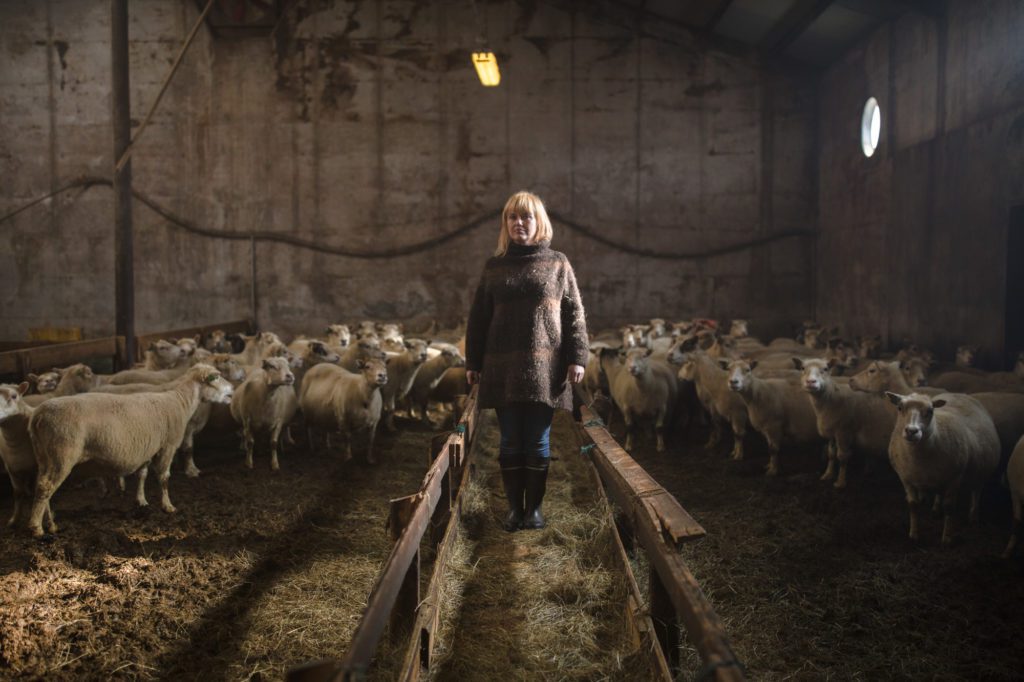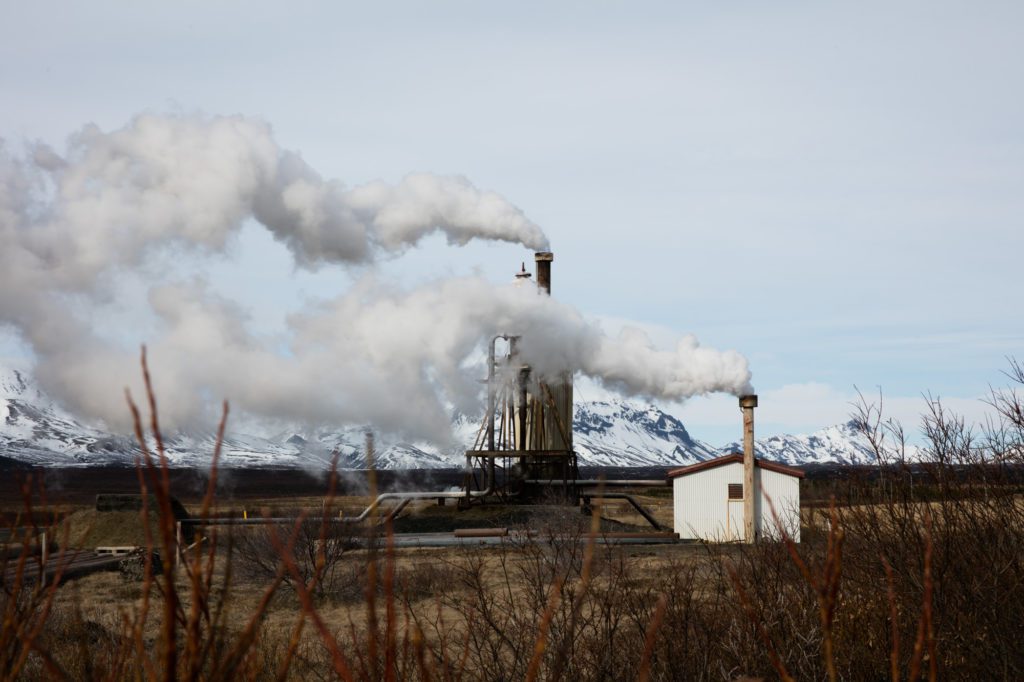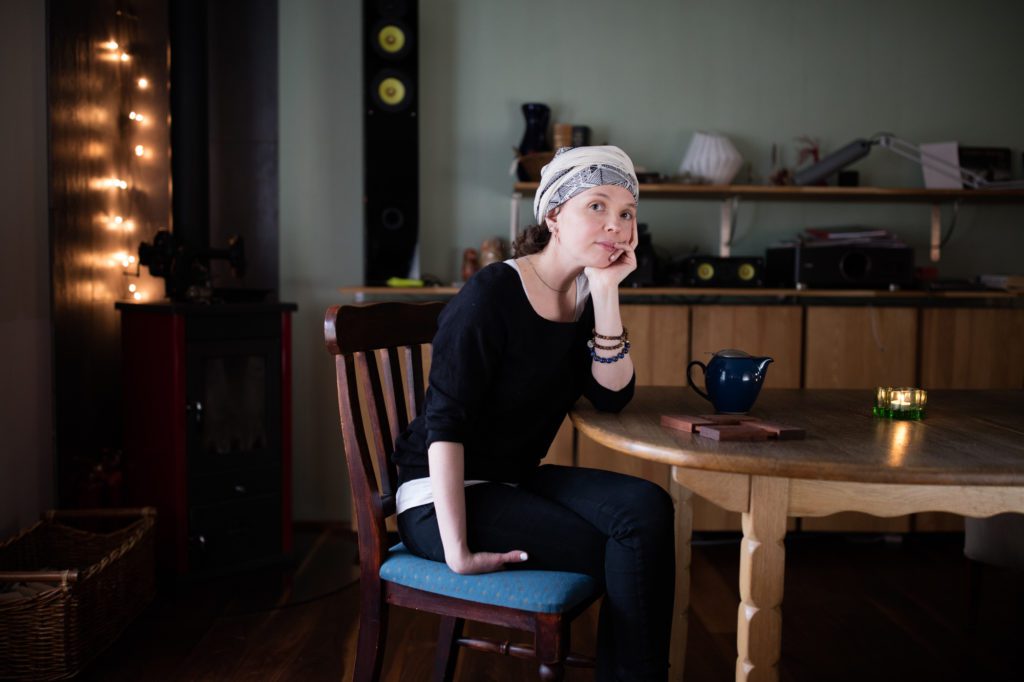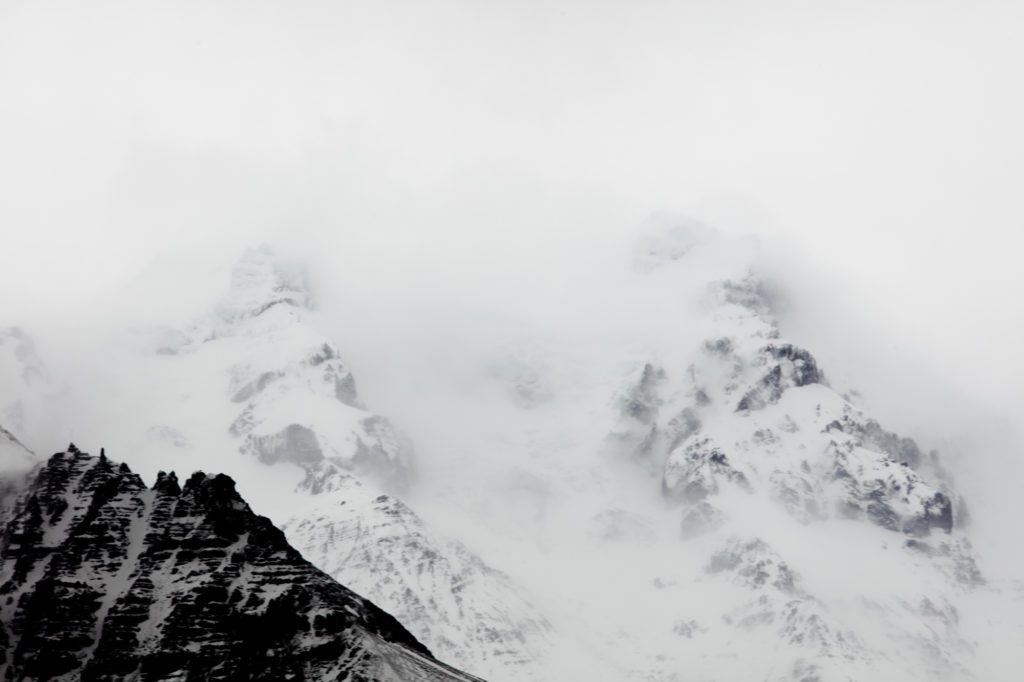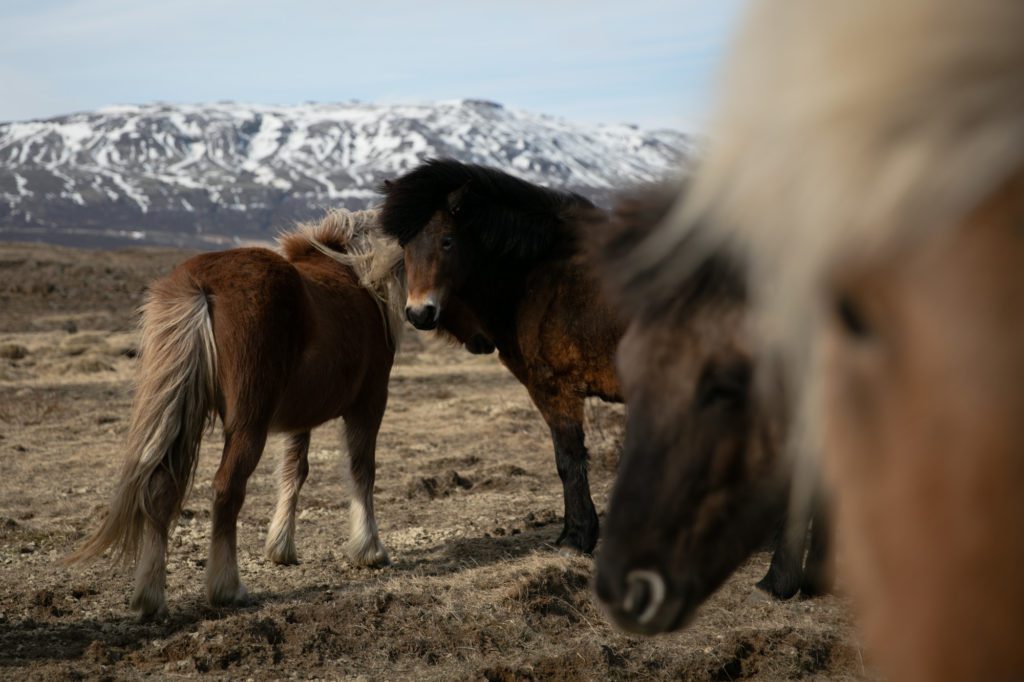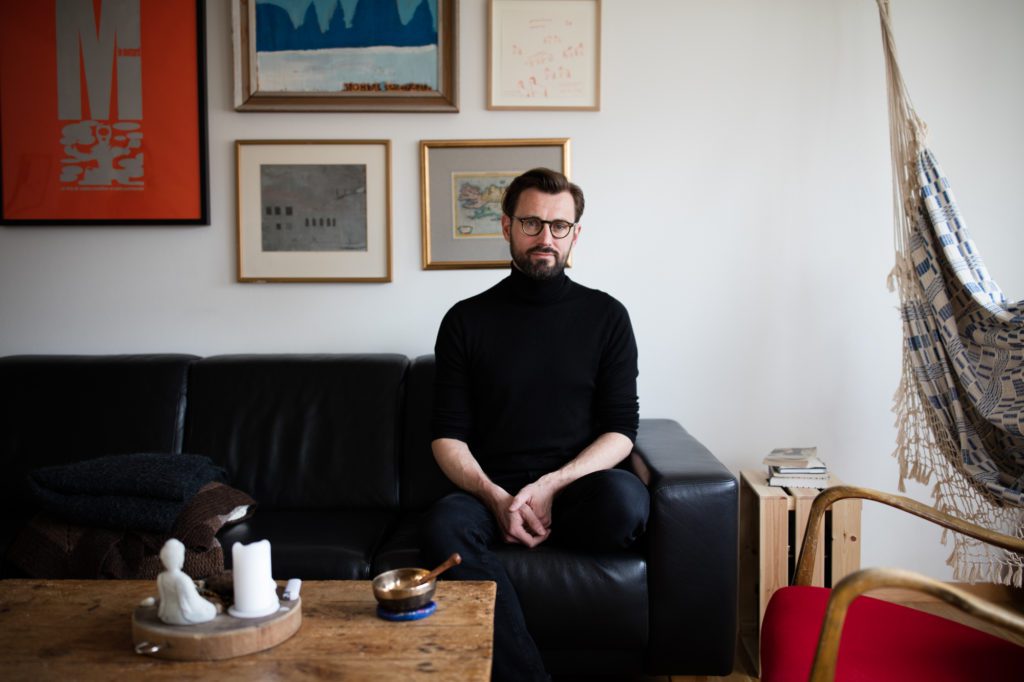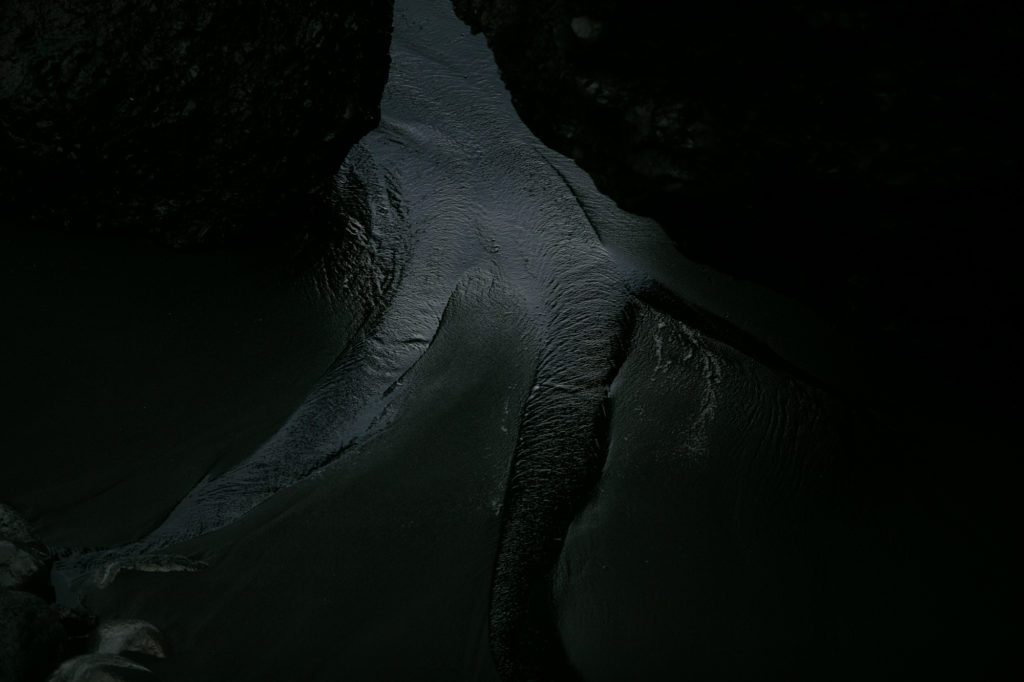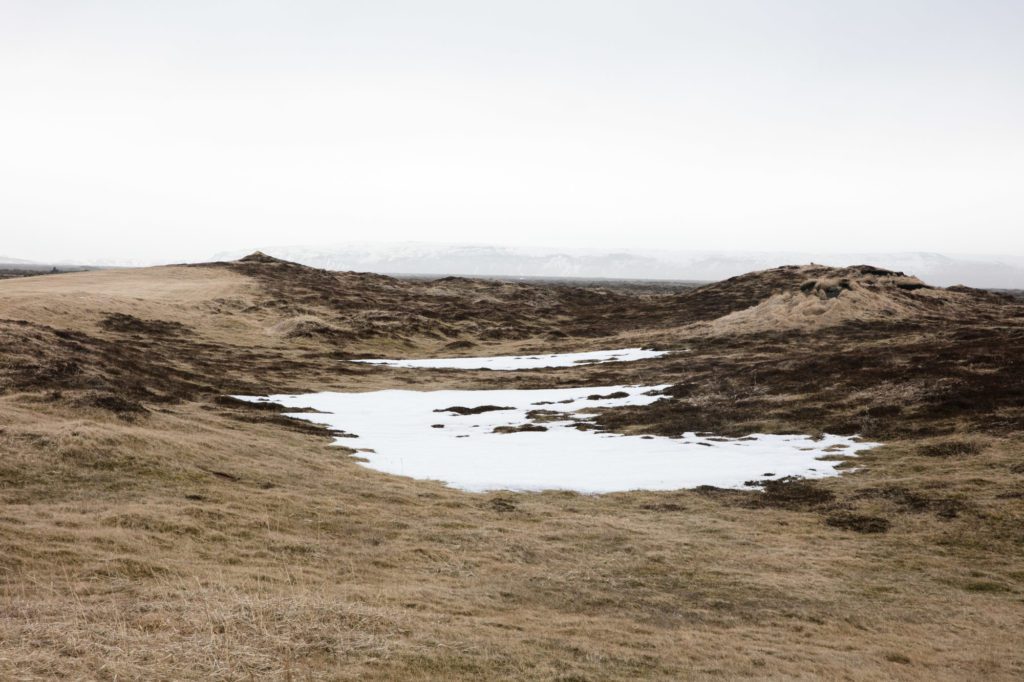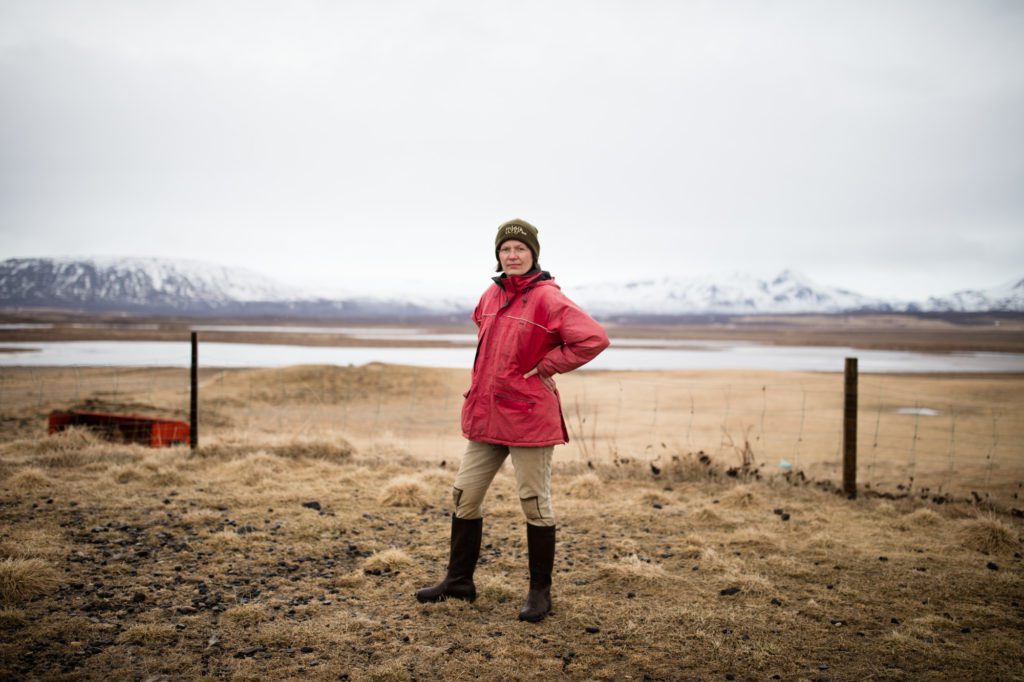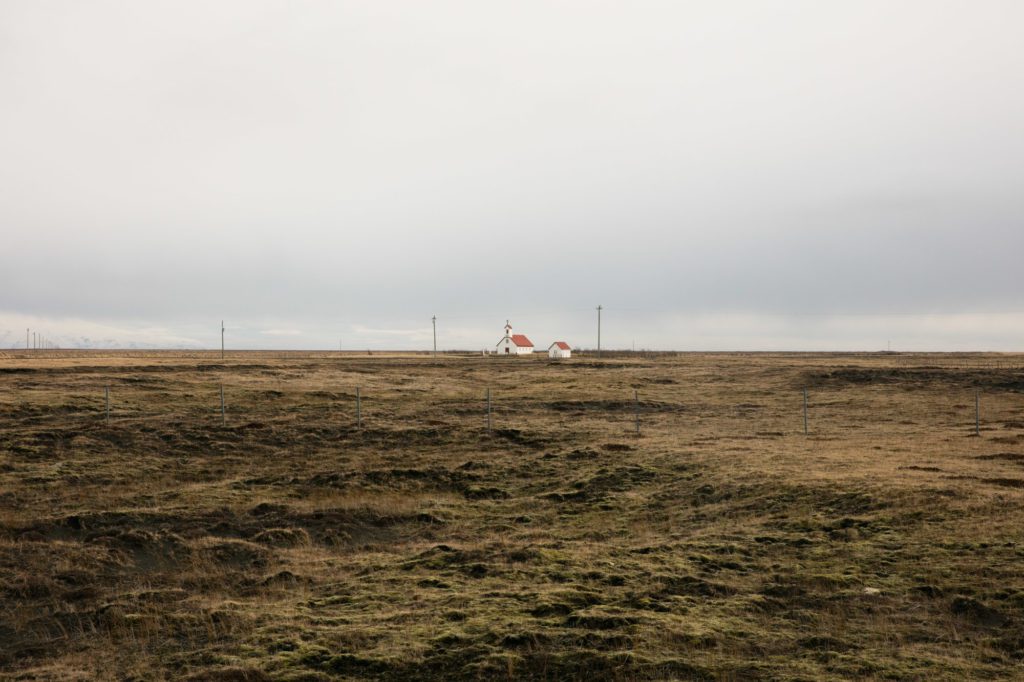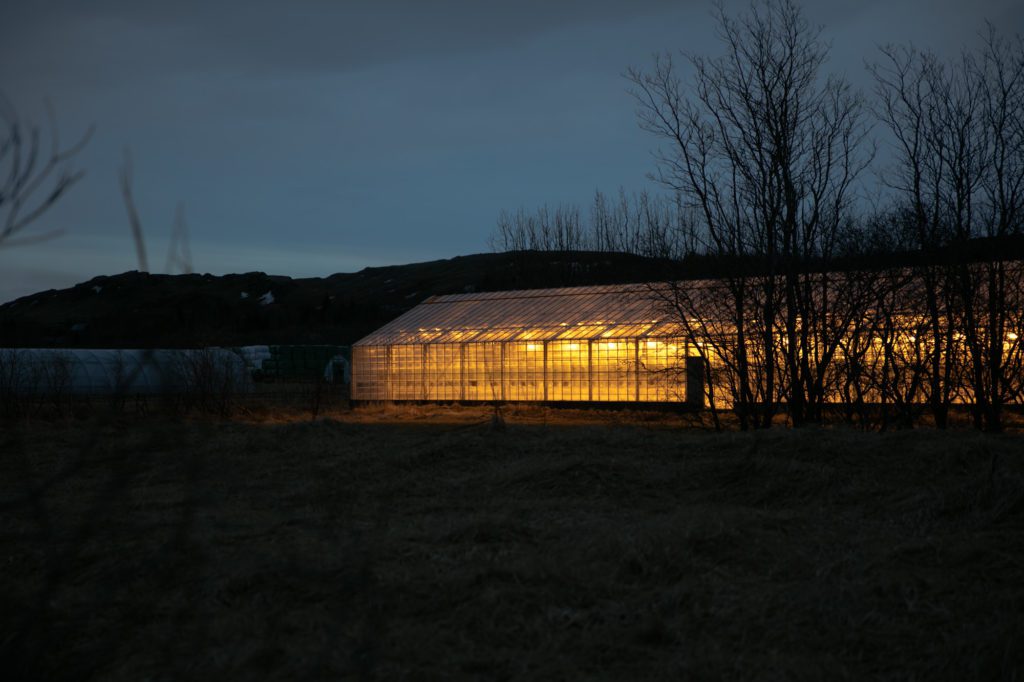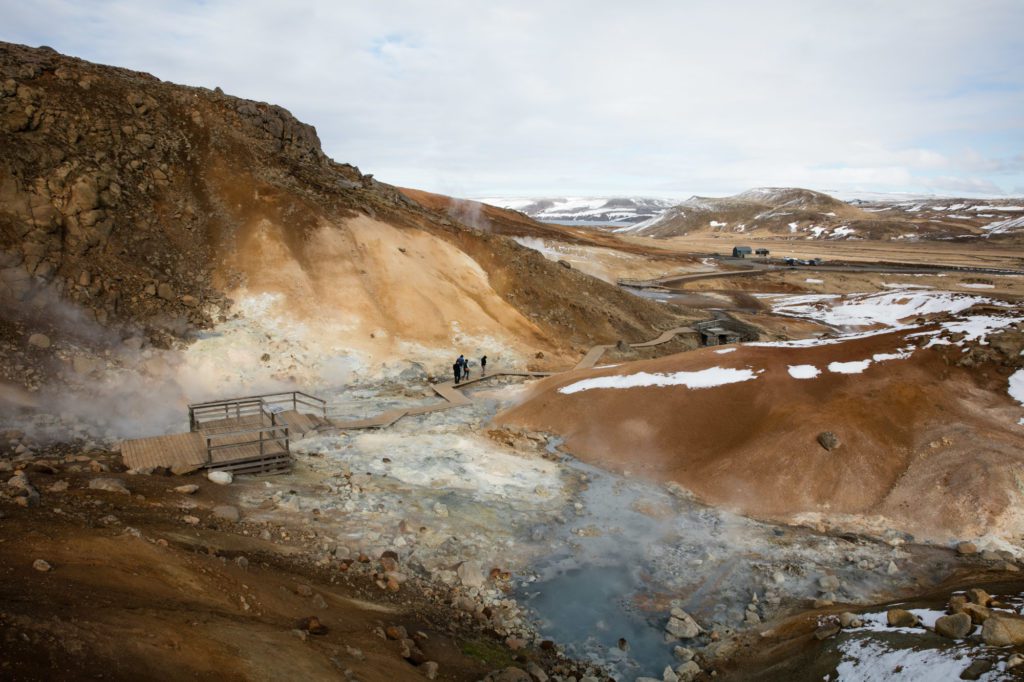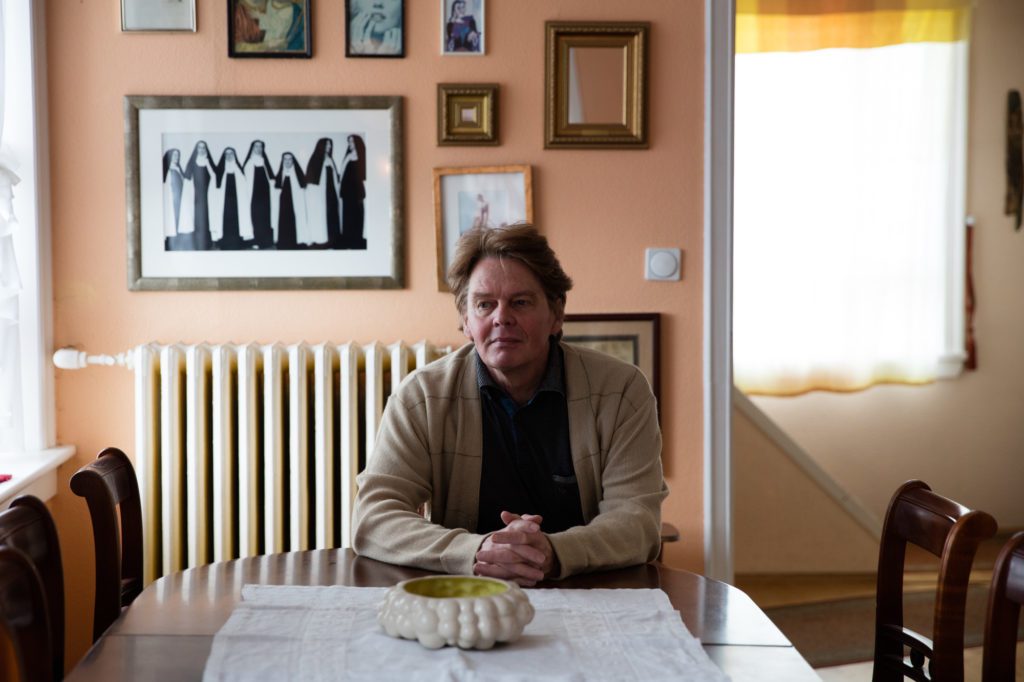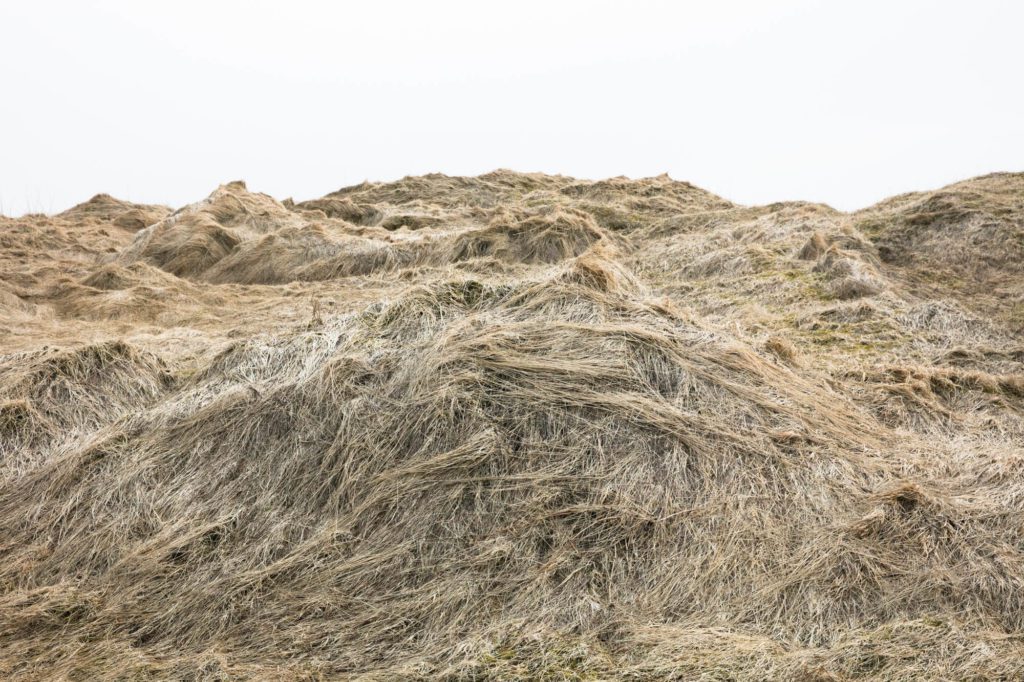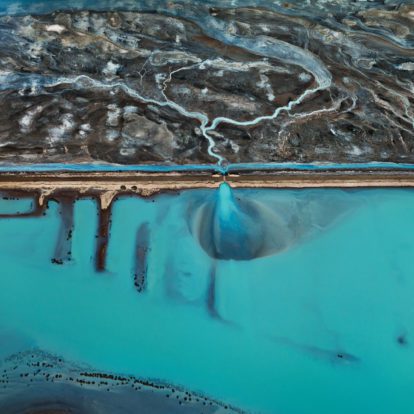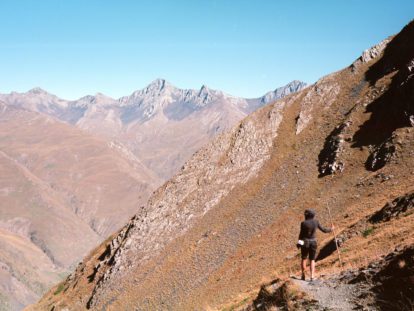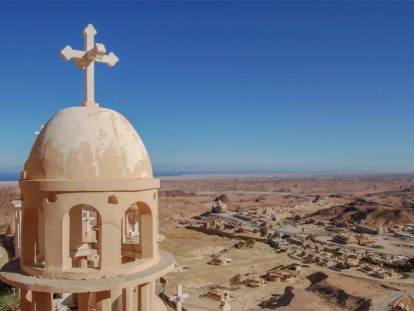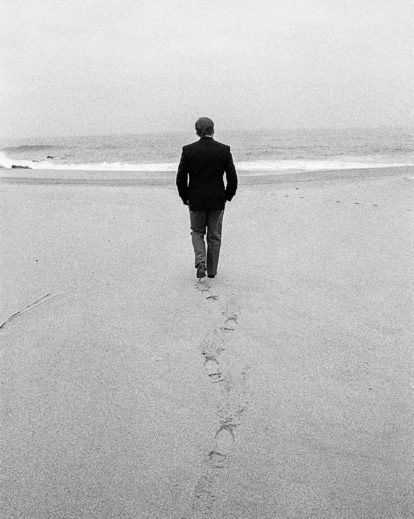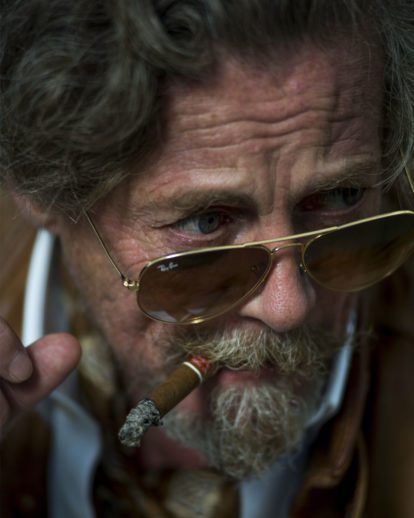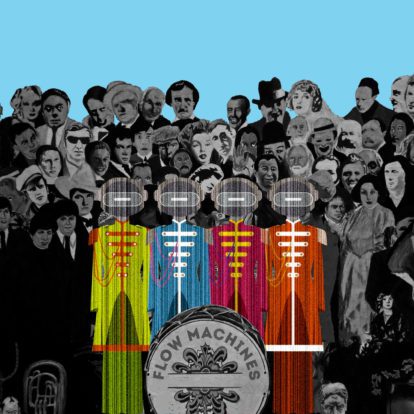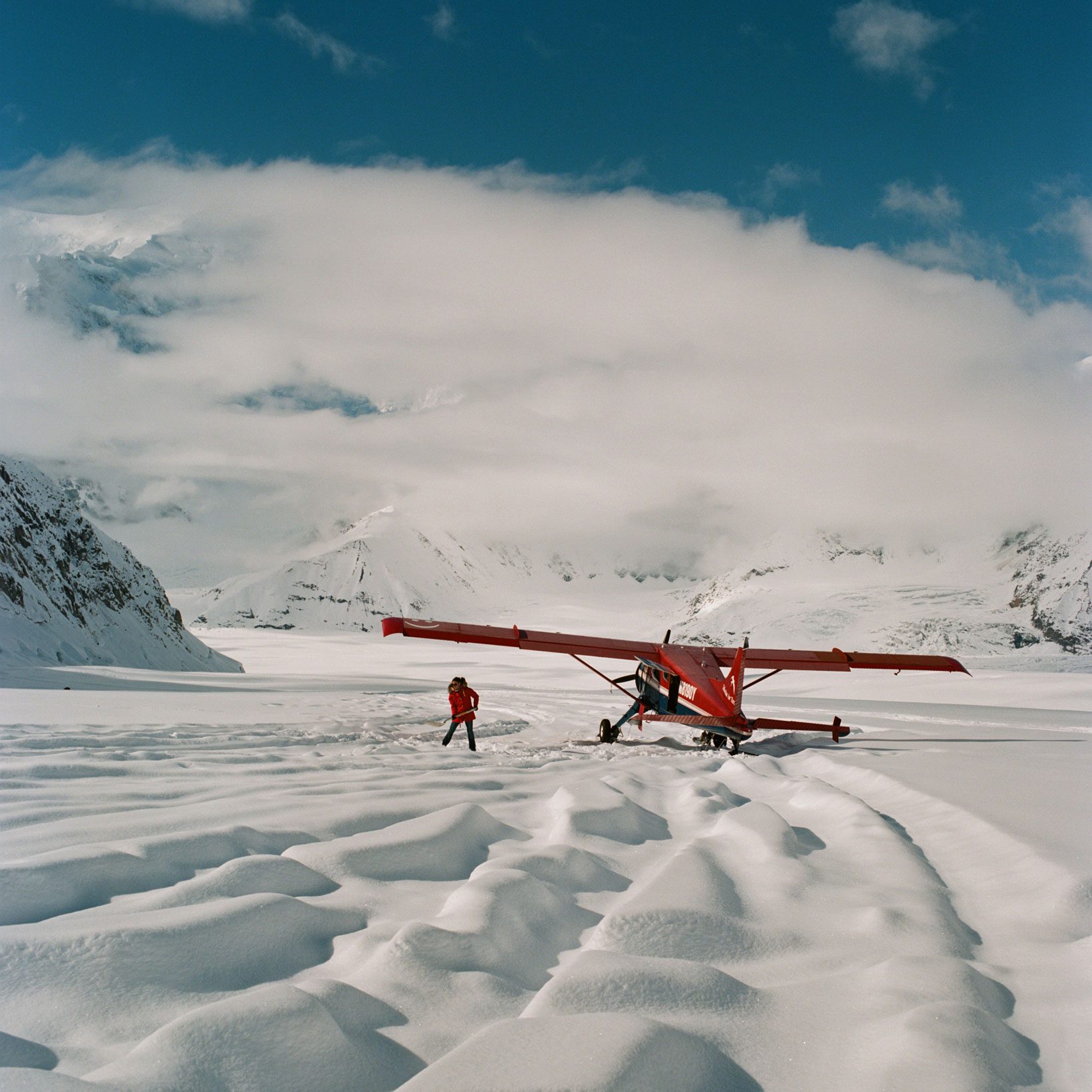I was researching Iceland for an upcoming trip when something caught my attention. It wasn’t the waterfalls, whales or Björk but something more subtle – I kept stumbling on the statistic that one in ten Icelanders will publish a book in their lifetime. My boyfriend and I were enamoured by the idea of a country devoted to literature, so we booked a flight and set out to discover what could possibly inspire so many people to write.
Once we landed, it did not take long for us to find out that the statistic was in fact wrong. Kári Tulinius, an author and editor at Partus Press, traced the origin of this statement back to a book printed in 2003 by Victoria Clark called The Far-Farers. It has since become an internet myth and spiraled out of control, inspiring stories by the BBC, The Guardian and more. However, even if one out of ten Icelanders will not publish a book, the country is home to a disproportionate amount of writers. The written word, and respect for it, seems to be in their blood.

Valgerður Þóroddsdóttir in her home in Reykjavik. Þóroddsdóttir, heavily influenced by American zine culture, started the small but influential publishing collective Meðgönguljóð (Pregnancy Poems) in 2012. It has since grown into the well respected Partus Press.
For example, at Christmas it is traditional to give books as gifts and during this period the country experiences the annual Jólabókaflóðið, a Christmas Book Flood. Annually, every Icelander is mailed a catalog called Bókatíðindi, listing the year’s new publications. There is even a television program, Kiljan, devoted entirely to books. This is an island that takes its literature seriously.
Despite their long standing literary tradition, Icelanders are still finding ways to keep the scene fresh and exciting. Recently, small collectives and publishers have started to take shape in Reykjavik. Drawing inspiration from zine culture, many young writers are publishing outside of the island’s two mainstream publishing houses and their self-bound, hand-made, short-run books are popping up in local bookstores. Readings and community get-togethers are abundant. “We’re back in the 60’s in some way,” says Anton Helgi Jónsson, an award-winning poet who published his first book when he was 19. “People are seeking something,” he adds. Iceland’s respect toward the written word transcends all age groups.
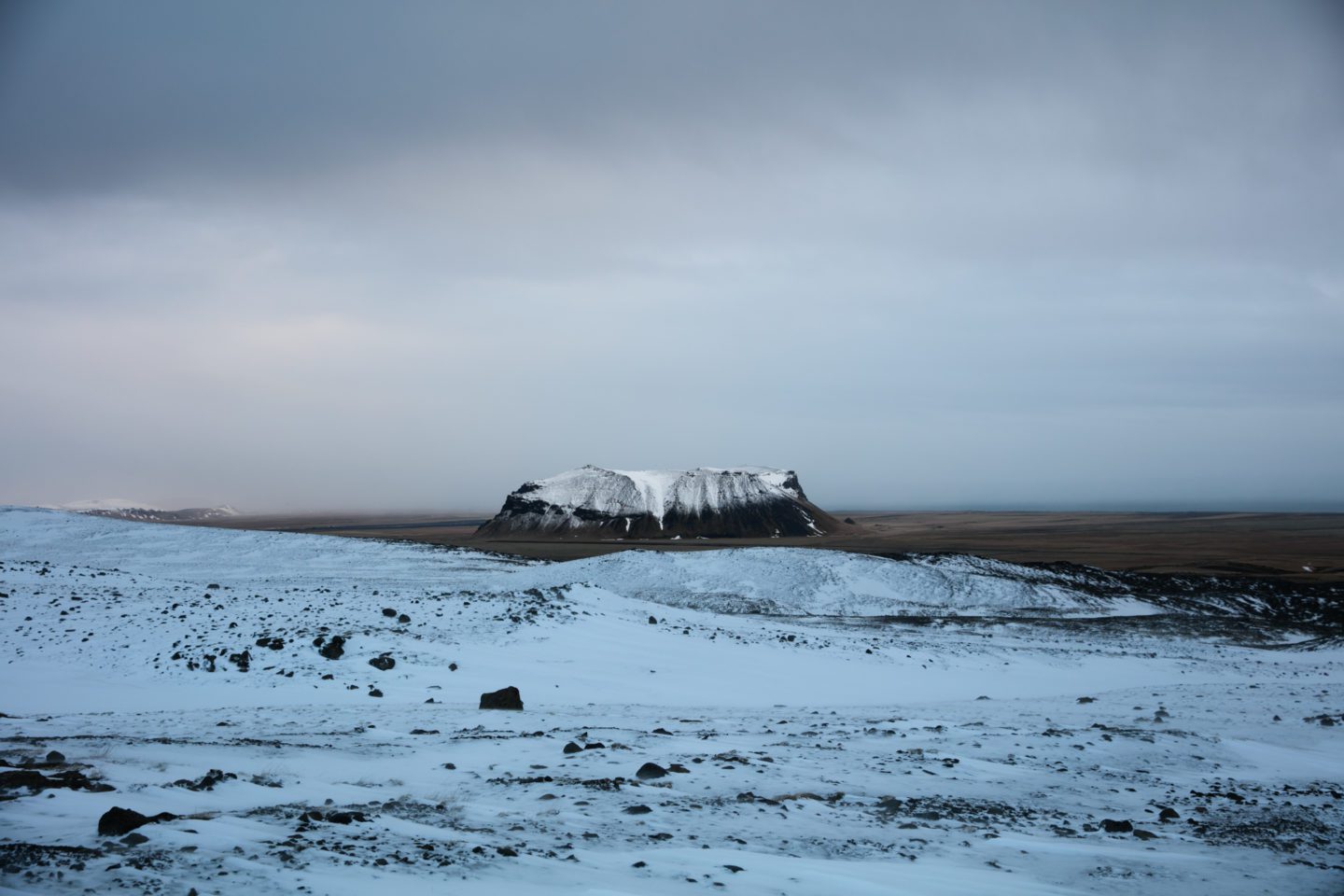
As a country full of myths and sagas, elves and mythical creatures are commonly spoken about in Iceland. According to many tales, elves live on tabletop mountains such as this one, Petsurey.
After a few days of exploring Reykjavik’s literary scene we hopped in our camper van and headed south. Having negotiating our way past tourist buses (Iceland is in the middle of a tourist boom) we began to get a sense of Iceland’s rich history through its barren landscape. We stopped to climb a hill where there was a sign explaining that the vikings ambushed their enemies here (Viking stories are thoroughly documented in Iceland’s historical sagas, some of the most important literature in the country). We drove further and found stacks of rocks where oral tradition instructs travellers to add a stone to bring good luck. Iceland, with its beautiful horses roaming the countryside, and mile after mile of sheep farms, has a rich tradition of storytelling that you seem to encounter even in the most unlikely of places.
We met Oddny Eir, an author and part-time farmer, in the sheep barn where she often writes. She showed us a homemade desk that fitted between the sheep stalls and told us how she loved the atmosphere and smell of the barn, that it connected her to her writing. “Because we were a very poor nation, composed mainly of sheep farmers, our culture is closely connected to the richness of language – it’s about weather, the sheep, cycles in nature. So as a writer you’re always using words tied to farming.”
“Being a nation, talking Icelandic, being independent, that’s what’s important.”
Sigríður Jónsdóttir
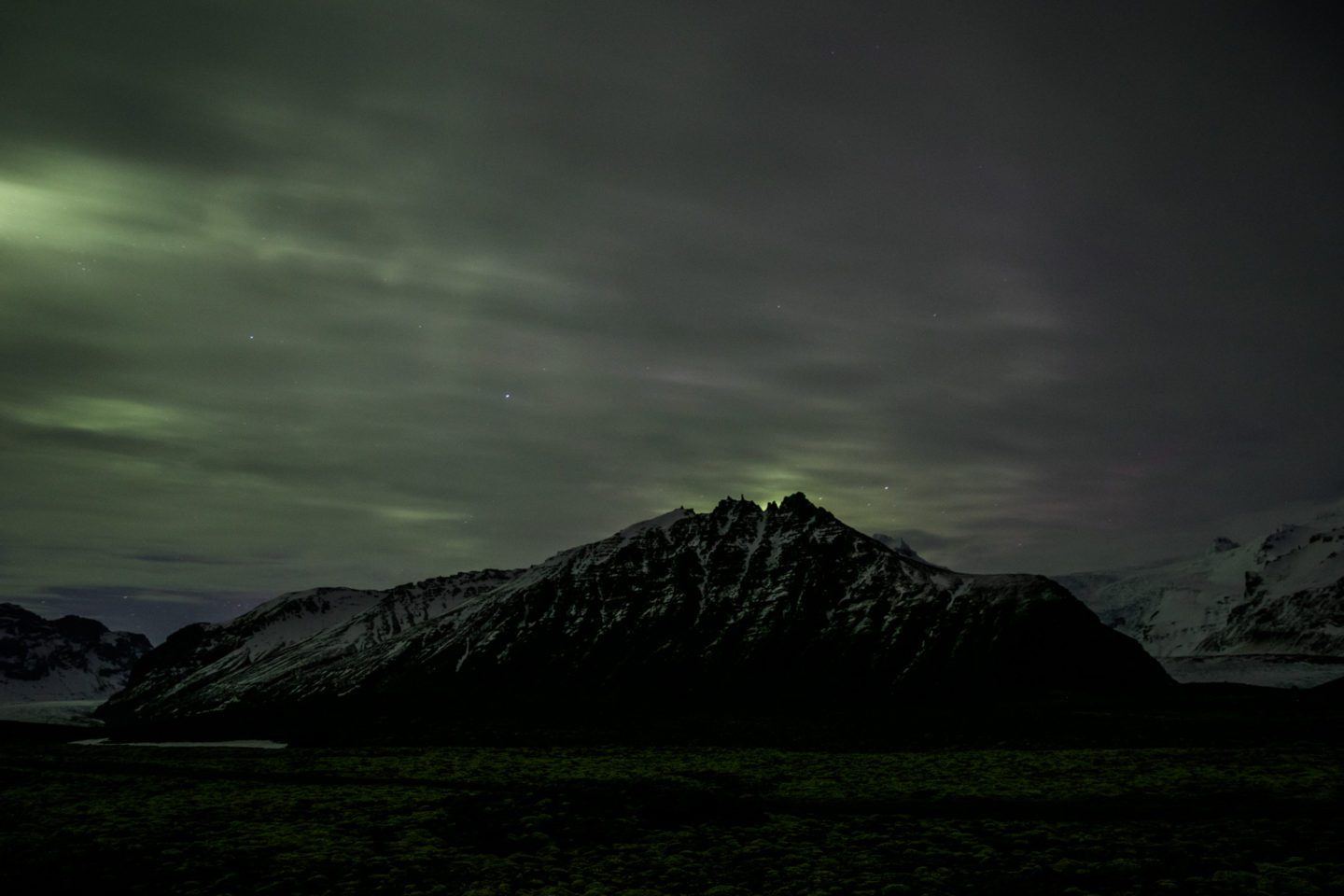
Waning northern lights, Vatnajökull Glacier.
Sigríður Jónsdóttir, another farmer who writes in her spare time, showed us a notepad she kept in her kitchen to write on. She explained the history of visas – short poems serving as a cultural landmarks and often unique to a region. “You make visas for fun and when everyone has learnt it, you sing it together with your community. You can also make visas when you’re riding your horse or when you’ve been out with the sheep all day. You gather in a hut in the evening and tell your visa. They’re often about nature and heritage. Being a nation, talking Icelandic, being independent, that’s what’s important.”
Authorship, poetry, storytelling and folklore all seem to come up in daily life and conversation. From the culturally important Icelandic sagas to the locally relevant visas, Icelanders value the written word not only as a way to make a living but as a means of expression and identification. They seem to write because they have to. “I decided that writing is my life, that’s what keeps me going, it’s not the publishing,” says Anton Helgi Jónsson, who is a recipient of a government funded grant for writers.
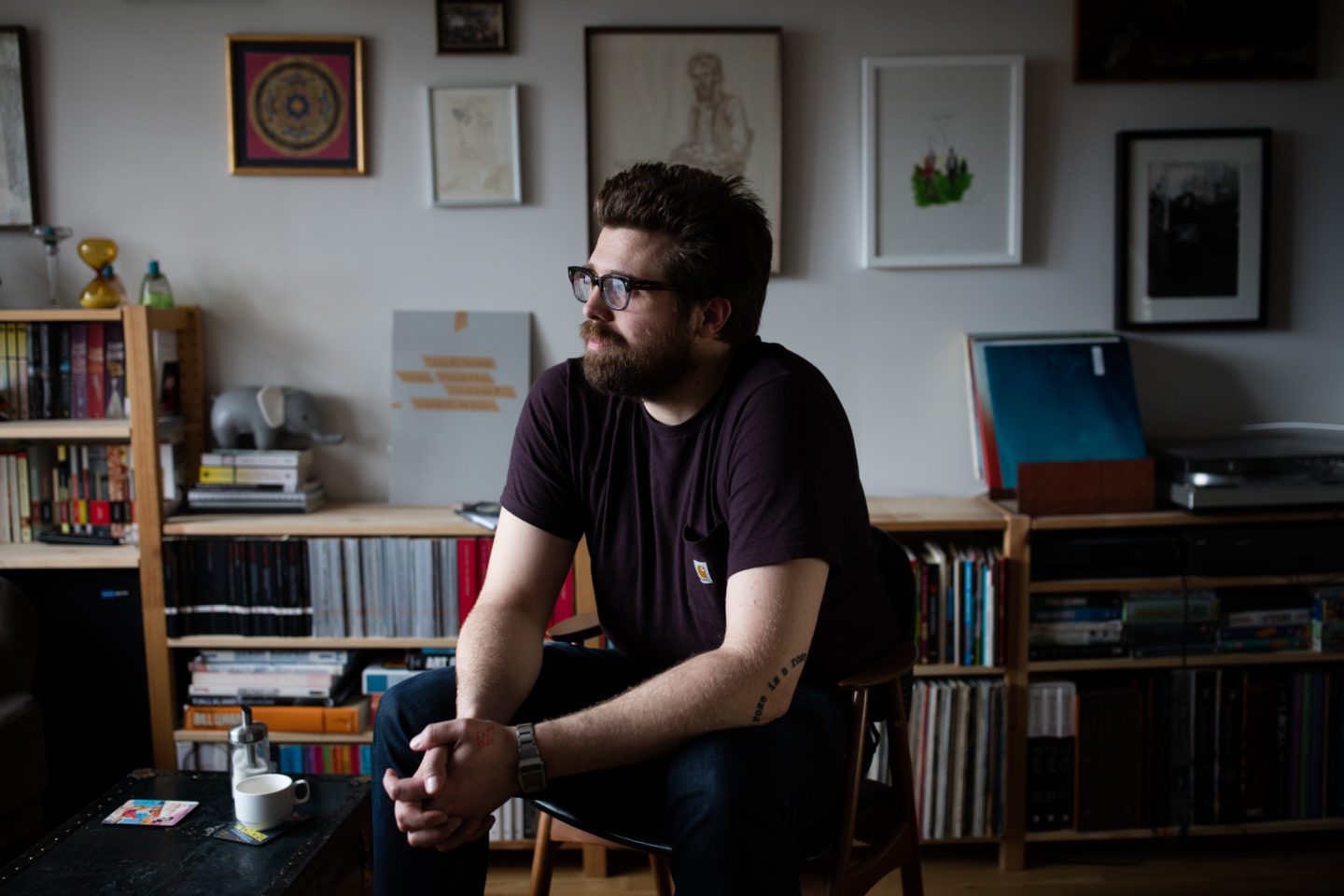
Björn Halldórsson is a young fiction writer and employee of the largest bookstore in Iceland. Unlike the majority of Icelandic authors, Halldórsson saw the opportunity of writing in English while the majority of Icelanders stick to their native tongue. “With our new immigrant communities, I’m looking forward to seeing the first immigrant novel published in Iceland,” he says.
In a time when everything seems to be going digital, and people express themselves on their smartphones in 140 characters or less, it’s refreshing to see a nation embrace the physical word. My boyfriend and I may not have narrowed down exactly what it is that inspires such creativity on this sparsely inhabited island but we did learn that Icelanders value hard work, tradition and a good story. If there is any more to life, I don’t know it.
